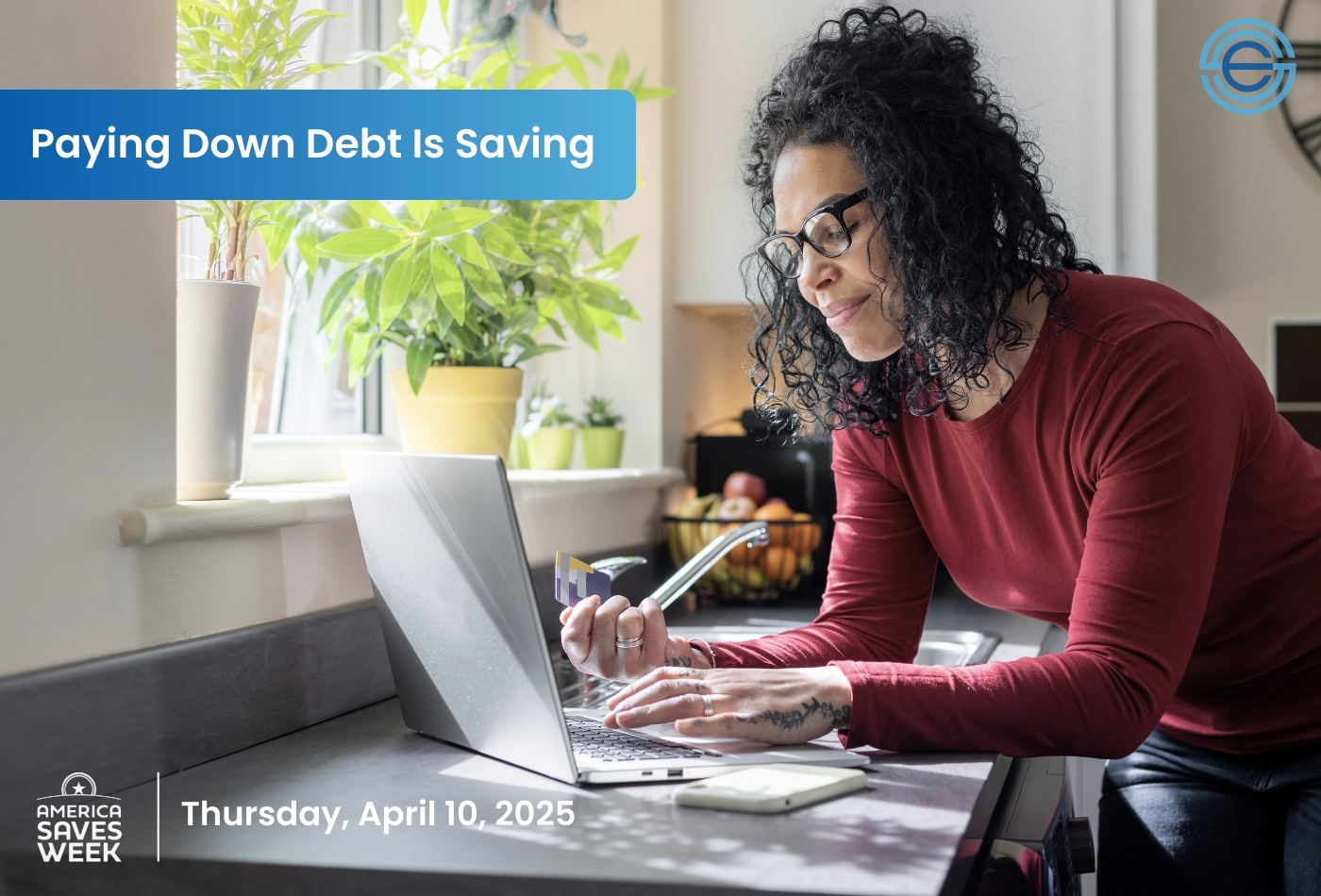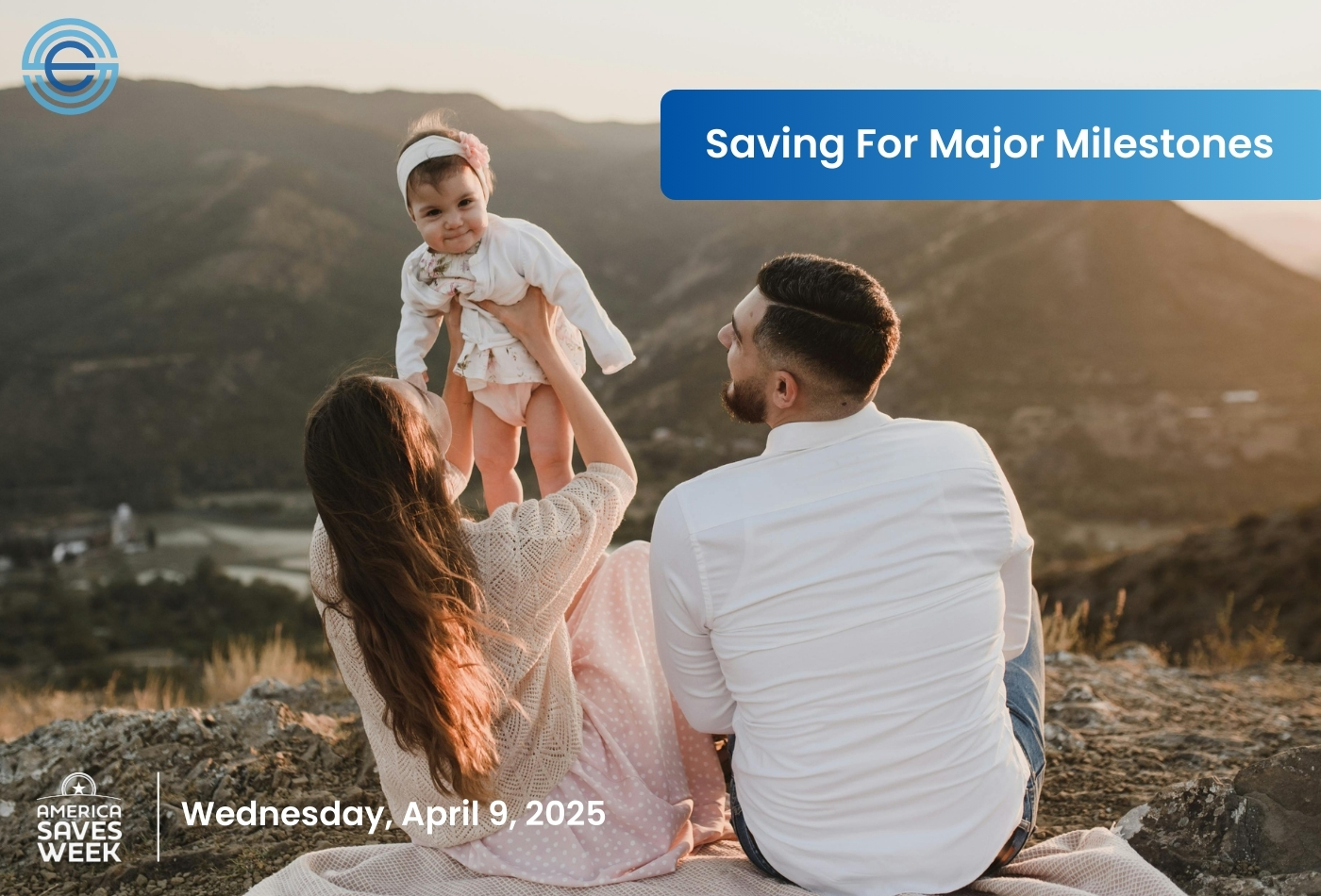Paying Down Debt is Saving

As you think about your finances and saving more, don’t forget to include debt reduction in your strategy. Reducing your debt enables you to improve your credit score, enjoy greater financial peace of mind, and free up resources to save for other goals.
Read on to learn some of the benefits of paying down debt, plus strategies you can implement to help you make debt repayment a priority in your spending and savings plan.
Benefits of Paying Down Debt
More Disposable Income: Every dollar you pay toward debt reduces the amount of interest you owe, which in turn lowers your overall monthly expenses. Once your debt is paid off, the money that was going toward debt payments can be redirected toward savings or other financial goals. Imagine having extra cash each month to save for a vacation, a new home, or build an emergency fund.
Improved Credit Score: Paying down debt improves your credit utilization ratio—the amount of credit you’re using compared to your credit limit. A lower ratio boosts your credit score, making it easier to secure loans or credit at better interest rates in the future. This improvement can save you thousands of dollars in interest over time.
Financial Peace of Mind: Living with debt can be stressful. Paying it off provides a sense of accomplishment and relief, reducing financial anxiety. With less debt, you’ll have greater confidence in your financial decisions and the freedom to focus on your goals without the constant worry of payments looming over you.
How Reducing Debt Helps You Save
Paying off debt not only reduces what you owe but also allows you to allocate funds toward savings. When you’re not burdened by monthly debt payments, you can channel that money into building an emergency fund, saving for a home, or contributing to retirement. This shift from paying off debt to saving for the future accelerates your path to financial security.
Strategies for Budgeting to Pay Down Debt
Create a Debt Repayment Plan
Similar to creating a budget, a solid plan to eliminate your debt is the key to success.
- List All Debts: Write down all your debts, including the amounts owed, interest rates, and minimum payments.
- Prioritize Payments: Focus on high-interest debts first (known as the avalanche method) or pay off smaller debts for quick wins (known as the snowball method). Our calculators can help you map out your strategy.
- Set a Budget: Allocate a specific amount each month toward debt repayment. Track your expenses and identify areas to cut back or ways to save to free up additional funds.
Automate Payments
Set up automatic payments to ensure consistency and avoid late fees. Automation also helps you stay on track with your repayment plan, reducing the risk of missing a payment. Our step-by-step guide to setting up one-time or recurring transfers through Online and Mobile Banking can help you set these up.
Use Windfalls Wisely
Apply any unexpected income, such as bonuses, tax refunds, or gifts, directly toward your debt. This can significantly reduce your balance and shorten your personal timeline to becoming debt free.
Take Control of Your Financial Future
By reducing your debt, you unlock the ability to save more effectively, improve your financial health, and reduce stress. Start today by creating a plan, setting clear goals, and using the strategies outlined above to transform your finances. Your future self will thank you!
As you’re considering your financial future and game plan, you may find these other resources helpful:
©America Saves Week



